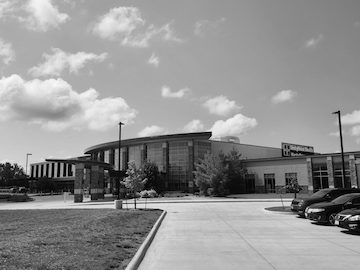Investing $50 billion into rural hospitals and healthcare
September 28, 2025

T-R FILE PHOTO
A T-R file photo shows the new UnityPoint Health hospital on the south side of Marshalltown, which opened in 2022 after construction was completed on the project.
Born and raised in rural Iowa, expanding access to high-quality, affordable healthcare in our rural communities is personal for me. Regardless of zip code, our families, seniors, and veterans should not have to travel long distances or jump through headache-inducing hoops to get the care they deserve or the prescriptions they need. As a member of the House Ways and Means Committee, which, among other issues, handles healthcare policy, I’ve worked to make healthcare more accessible in Iowa by investing in rural healthcare infrastructure and ensuring that our rural hospitals and clinics can remain open and operational.
As part of the package of tax cuts that Republicans passed and President Trump signed into law for working families, we included the largest investment in rural healthcare in history to the tune of $50 billion. The newly established Rural Healthcare Transformation Program will surge resources to rural hospitals and healthcare facilities so that Iowans living in rural areas can get routine checkups, have bloodwork and other screenings conducted, or, in times of crisis, receive rapid emergency care close to home. This funding will also help recruit and retain healthcare professionals to practice in rural communities and support hospitals in modernizing medical technologies to best serve patients and cure illnesses. Moreover, this infusion of $50 billion into rural healthcare will stem the tide of devastating hospital closures nationwide and work to reverse this alarming trend.
In addition to this historic investment in rural hospitals, rapid emergency medical services are critical for our families and seniors in our rural communities where seconds can be a matter of life and death. As a former volunteer EMT with the Hull Ambulance Service for fifteen years, I know that we need to invest in rural emergency response to ensure that when Iowans dial 911, first responders are on the scene as quickly as possible.
It’s why, earlier this year, I helped introduce the PARA-EMT Act to deliver the financial resources that our rural communities need to recruit qualified medical personnel, train new paramedics and EMTs, and retain these heroes who face higher levels of burnout and stress. This legislation requires that at least 20% of the approved grants be deployed to rural communities while calling upon the U.S. Secretary of Labor and the U.S. Secretary of Health and Human Services to conduct a survey on the state of emergency medical services nationwide and in rural communities and provide Congress with a full report.
I also recently voted for, and the U.S. House Ways and Means Committee passed, legislation to expand early detection screenings for many types of cancer so that we can catch cancer early when it is most treatable. Receiving a cancer diagnosis is devastating news for patients and can be confusing and scary for families and loved ones. However, through new advancements in medicine and early detection, there is real hope for recovery. This legislation will help our seniors receive the routine screenings and early tests that truly save lives.
Investing in rural EMS, protecting our rural hospitals, and delivering affordable, reliable care for our families and seniors remains a top priority for me. Through Republicans’ historic $50 billion investment into rural hospitals, we can improve patient care, attract healthcare professionals to rural communities, and keep our healthcare facilities open, operational, and fully staffed.
——-
Randy Feenstra, a Republican from Hull, represents Iowa’s Fourth District in the U.S. House.
Search
RECENT PRESS RELEASES
Related Post
